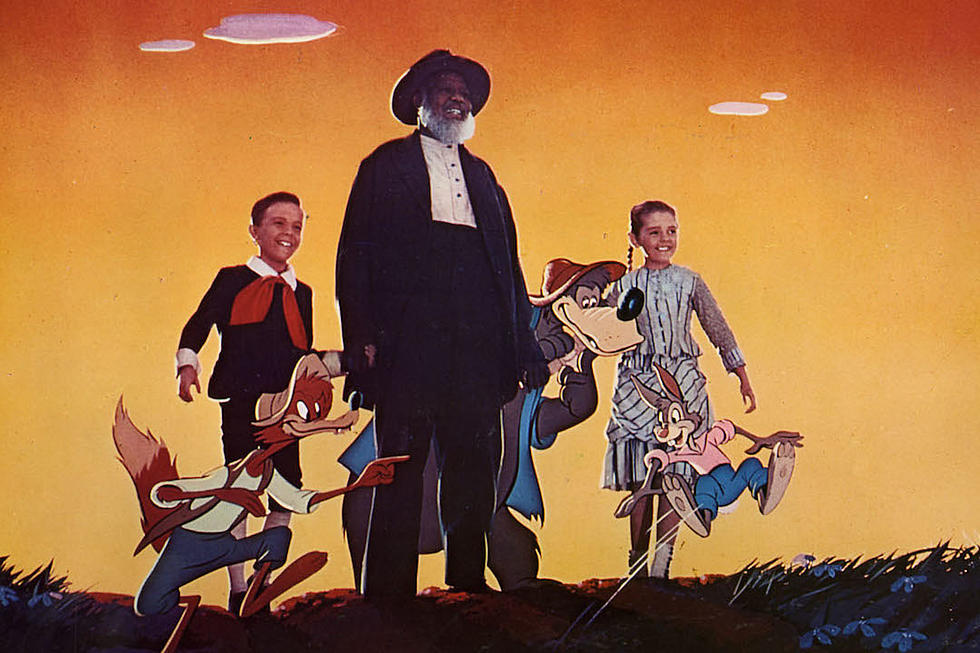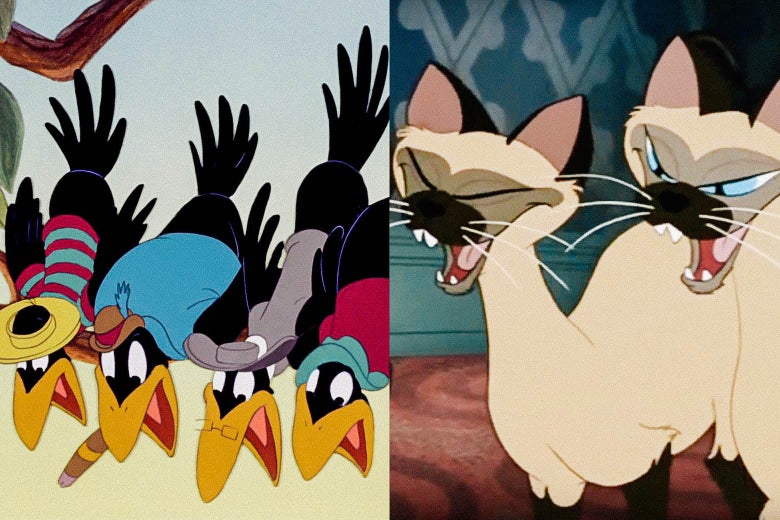Disney+ launched this week to amazing financial success. The Monopoly of Mouse boasted that 10 million users had signed up in the first 24 hours. The streaming service has brought many classic Disney films out of the vault. One things this writer/new subscriber noticed was a flag that came with many of the movies. This notice claimed that the films... "may contain outdated cultural depictions." This venture into time has brought up Disney's journey in a world that continues to struggle with racism and prejudice. So it's time to ask the question: What do we do with these movies?
Pictured above is a screenshot from the 1946 Disney movie, The Song of the South. The image may seem familiar due to the Mandela Effect, but I guarantee you haven't seen the movie. It hasn't been released ever on home video. This is primarily due to the an antiquated and racist depiction of an African-American man who is thoroughly satisfied with his Southern plantation lifestyle. Though the film is universally recognized as dated, the film's reach plays a primary role in one of the most successful theme park rides of all time: Splash Mountain.
Disney chose not to add Song of the South to its streaming service in an effort to hide its past. Yet I find this incredibly hypocritical, as they still have many xenophobic depictions in their films. This should not be surprising to find in Disney's history. Walt himself hosted Leni Reifenstahl, the famed Nazi propoganda filmmaker on a tour of the studios during the production of Fantasia. Fantasia, along with Dumbo, Peter Pan, and Lady and the Tramp are the most blatant obvious examples of poor depiction of people of color. I mean seriously, take a look at some of the images below!
Though the images above are equally as upsetting as Song of the South, Disney has these uncensored versions for the general enjoyment of children and families everywhere. They even revisited the Simasese cats with new, equally horrible, jazz-singing cats in the 2019 update. Personally, I do not think Disney gets the be the gatekeeper on what is acceptable for viewing and what is not. It is the responsibility of the company to own its place in America's struggles with racism. Looney Tunes and Tom and Jerry, two cartoons of the same period, have the following warning before each cartoon:
It is part of the American responsibility to understand and criticize our past. What better way to view this than to look at film? Important films in American history such as Birth of a Nation and Gone With the Wind have recently fallen out of grace due to their bigoted depictions of African Americans. Yet I still believe it is important to study these films and openly criticize them. If we fail to view our history for what it is, we are doomed to repeat it. This is certainly not the job for our children to take on, but perhaps a conversation needs to be taken upon on the adult generations. Education is the best way to strengthen our bonds and what better way than visual and audio representations of our past?
In short, Disney should not hide their past, but rather open themselves up for criticism. The long-time family company has had blatant missteps. It is important for future generations to understand how to grow from our failures as a culture. The reason we watch these films is the same reason we read To Kill a Mockingbird or The Diary of Anne Frank in our school systems. Though I come from an incredible mount of white privilege, which can understandably invalidate my opinion, I still believe these film have culture importance. The films have a special prominence for educating the masses in day in age where blatant and open white supremacy is seemingly acceptable in many Americans' eyes. These films are not to be just "put on", but require a responsible viewing by all involved. Our past is etched in stone, however, our cinematic future does not have to be.




Comments
Post a Comment